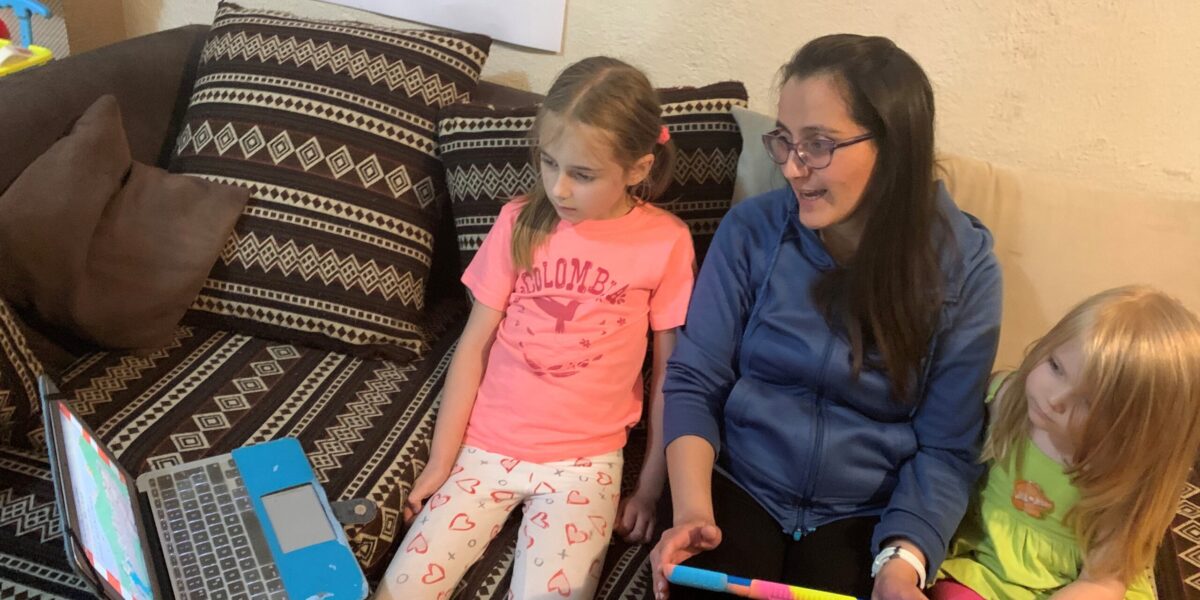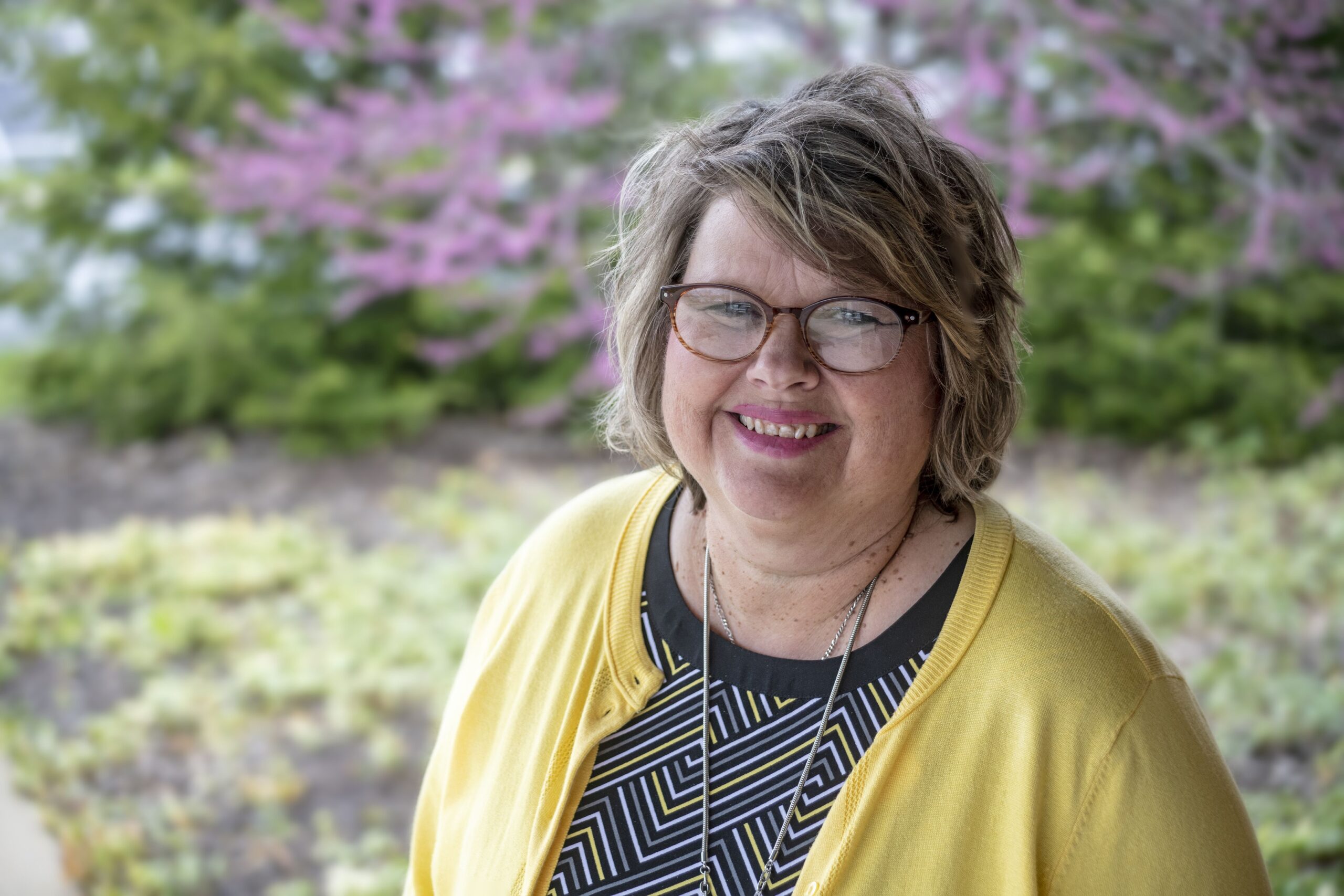NEWTON, Kansas (Mennonite Mission Network) — In a world wracked by escalating conflict, Peter Wigginton, serving with Mennonite Mission Network in Ecuador, received the timely gift of mediation training from the Lombard Mennonite Peace Center (LMPC) last fall.
Wigginton’s connection with the peace center began in fall 2018, when he and his wife, Delicia Bravo, preached at Lombard (Illinois) Mennonite Church, one of their supporting congregations. It was at that time that Richard Blackburn, then LMPC executive director, first offered him a scholarship to attend the "Mediation Skills Training Institute for Church Leaders" (MSTI).
A year later, Wigginton was able to participate, from Quito, Ecuador, in the LMPC’s online, five-day MSTI event. The gift of this training, which normally costs $700, helped to nurture the couple in their ministry.
In turn, Wigginton is sowing the seeds of mediation in the soil of Quito Mennonite Church, where, in January and February, he shared the materials, which he translated into Spanish, in Zoom sessions with his congregation. In a discipleship/baptism class and a congregational workshop spanning several Sundays, participants studied themes and gained tools for conflict transformation: conflict in the Bible; personality styles and conflict; communication/listening; interest-based negotiation; congregations divided or united by conflict; feelings of powerlessness and invalidation; and group decision-making.
"The training I received included learning about mediation and conflict from a church and congregational perspective," Wigginton said. "We spent a lot of time in role playing, practicing different skills and techniques taught by Richard Blackburn, our facilitator. He gave us a great theological base for the mediation skills, as well as shared a lot of personal experiences."
Wigginton said he was excited to teach the conflict transformation skills to members of Quito Mennonite, a congregation that is struggling with some conflict that it desires to resolve in Christ.
 The sign for the Mennonite Church in Quito, Ecuador, expresses the mission of the church: "We pray and work to promote justice and build peace, inspired in the life of Jesus." Photo by Linda Shelly
The sign for the Mennonite Church in Quito, Ecuador, expresses the mission of the church: "We pray and work to promote justice and build peace, inspired in the life of Jesus." Photo by Linda Shelly
"Our church has been going through some really complicated decision-making processes, and we have some more coming up," Wigginton said. "While the topic of interpersonal communication and healthy listening was important, we spent a lot more time on how church structures can evoke feelings of powerlessness and invalidation.
"Unhealthy and historic factors, as well as fuzzy roles and lack of communication, can foster a space that becomes rife with conflict. This training began to dissolve some of the intensity."
Delicia Bravo also helped to dissolve some of the heaviness of the material with the reading of a children’s book on dealing with conflict in the middle of each Zoom session. "After reading the book, Delicia shared reflection questions with the children. The adults reflected on some of the questions, as well," he said. Two of the books she read were "Here Comes the Cat" and "The Butter Battle Book."
Churches struggling to resolve conflict is a common experience across the world, among individuals and within groups, Blackburn said in a recent Zoom call. Blackburn currently serves as LMPC director emeritus and senior consultant. In almost four decades of serving LMPC, Blackburn conducted 210 meditation trainings, attended by more than 7,400 pastors and other leaders, including some Mission Network mission workers and partners.
"Conflict is a growth industry all around the world, and for people like Peter, mediation is part of the Anabaptist peace witness," Blackburn said. "Mediation training can help people understand peacemaking in all areas of life, including dealing with conflict in families, church families and communities."
Blackburn said that Lombard’s training is different from the classic mediation model, in that it explores the deeper roots of conflict — working from a family systems perspective — rather than only addressing immediate issues.
"To facilitate healing, we try to surface the chronic anxiety within the congregational system; that is, unresolved issues that have historical roots," Blackburn said. "Oftentimes, churches will experience disproportionate levels of high intensity that have been building up over years because of unresolved past conflicts, various losses, as well as secrets that have been kept."
Despite the hard work involved in excavating the roots of conflict, Wigginton said Quito participants generally gave positive reviews of the material. Because of this positivity, Wigginton, with Mauricio Chenlo, minister of church planting and leader of the Sent Network for Mission Network, hope to soon share the online training with indigenous churches, as well. Chenlo had attended LMPC’s five-day mediation training in 2009, also with a scholarship provided by the peace center.
"Participants told me the material helped in building trust going forward," he said. "Conflict is not particular to our congregation — it is a universal experience. And yet, also universal is the reconciling message of Jesus. … From an Anabaptist perspective, Jesus’ message involves communal reconciliation. Many of us believe that if we are not reconciled to our brothers and sisters in Christ, then our personal salvation doesn’t mean much."
Editor’s Note: Mission Network helps workers and congregations to form a Ministry Support Team (MST) that champions the worker’s call to ministry. The work of securing the needed funding is shared by Mission Network, the worker, the MST and the sending congregation. This is distinguished from the "faith mission" approach, wherein the workers are entirely responsible for raising their support.
An MST consists of five or more individuals who care for a mission worker, through prayer, and who encourage them with notes and cards, communicate with them and their friends back in the United States, and find the financial resources to support their ministry. A staff person serves as MST coach to help team members clarify roles, offer advice and counsel, provide resources, and link the MST to other churches that want to support the mission worker.
To inquire about how you or your congregation can support a mission worker, contact Haiam Gendi: HaiamG@MennoniteMission.net








